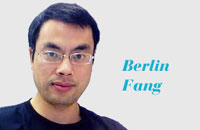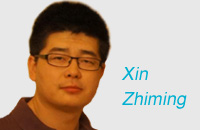Curb anti-intellectualism in cyberspace
By Berlin Fang (China Daily) Updated: 2014-06-16 08:56
I have started to use WeChat, Tencent's popular instant messaging app, to communicate with family and friends back home, and I really enjoy its convenience. But one unfortunate tendency I see is its ability to spread biased, misleading or even wrong information as people share one post after another. With just two clicks, you have shared a post someone sent you. It no longer embodies the process of reflection, composition and publishing, and the speed of forwarding is a hidden curse, as problematic posts spread at an astronomical speed.
There might be elements of truth in such posts, but mostly they are like mental pink slime. There may be some beef in it, but who knows what else goes into it? Biases? Illusions? Personal agendas? Pure stupidity? On any given day, people are posting and re-posting articles tailored for WeChat about innovation, product development, parenting, dating strategies and all sorts of motivational mumbo jumbo. The abundance of information is overwhelming, yet as you sift through them, you see most have little to no value. Some are shot through with biases, which make hipster parents look respectable in only sharing their baby photos five hundred times a day. At least they are only annoying. Mental pink slime gets consumed while critical thinking that can be chewed upon is rare. Discerning readers may pause and ponder before they post, but many just share whatever comes their way, no matter whether the posts help to take a debate or an inquiry to a higher level.
I discussed this phenomenon with a friend of mine and he told me that when he tried to share some serious observations or research with his WeChat group, few people paid it any attention, while frivolous half-truths were passed around like debris in a whirlwind. Is WeChat dumbing us down? Probably not, it has just made the dumb more visible. It makes mental laziness the rule, not the exception.
Despite the apparent variety of content in the obsessive sharing, many people choose to stay within their mental comfort zones, reading and sharing things that echo what they already think. It is as if they are toddlers still drinking infant formula when they have the teeth to eat vegetables and meat.
I am sure that there are many experts in China who can educate the public in any given field. Yet what happens is that a handful of know-it-all celebrities with their "perks-pertise", as it has been dubbed because of their dubious association with interest groups, and professors nicknamed "p-roar-fessors" - jiao shou, meaning roaring beasts - because of their loud claims which often fall flat, are mentioned in public discussions, mostly in ridicule, and have tarred all experts with the same brush.
I am sure that some experts deserve their loss of credibility. But we need experts who are effective communicators, so academic expertise and public understanding can meet halfway. In many cases, expertise is of value only when it ventures out of the ivory tower and connects with the real world in a positive way.











